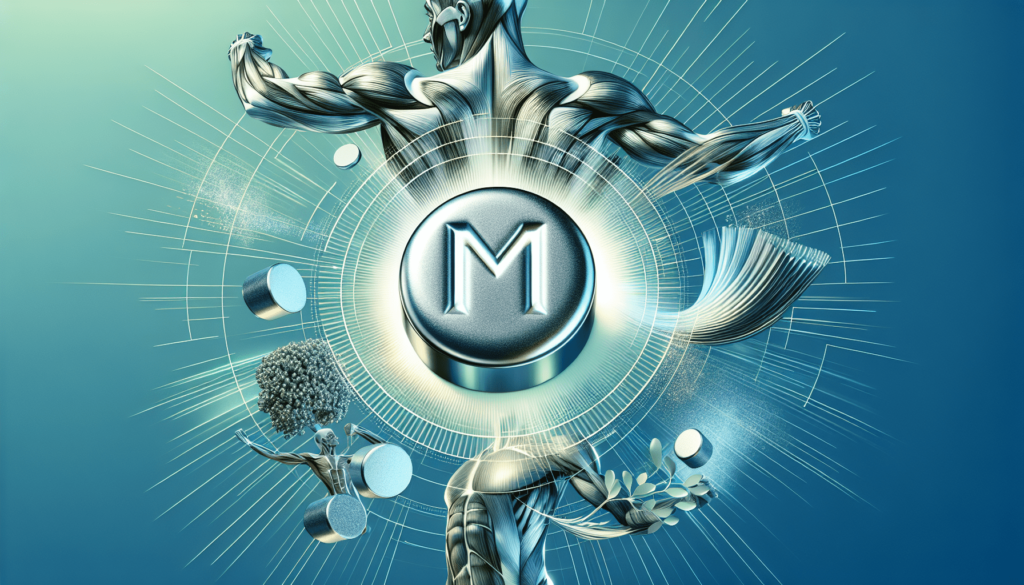Are you tired of waking up in the morning, stretching your arms, and feeling like you’re trying to impersonate a rusty tin man from “The Wizard of Oz”? Perhaps you’ve found yourself doing an impressive, yet embarrassing, impersonation of a salmon trying to leap upstream while simply trying to tie your shoelaces. If this sounds familiar, then kudos! You might be lacking something called magnesium, and, believe it or not, it isn’t some new age crystal healing method. Nope, it’s a mineral more crucial to muscle function than trying to find your lost Wi-Fi connection on a stranded island.
What in the World is Magnesium?
Magnesium is the rockstar mineral that’s been moonlighting in your nuts, seeds, leafy greens, and whole grains without demanding much attention. It’s one of those essential minerals, which means your body needs it but doesn’t quite know how to make it on its own, much like my attempts at a soufflé. If you were looking for a wonder worker, magnesium’s your guy—I mean, mineral. It plays a crucial role in countless bodily functions, and your muscles are its favorite playground.
The next time you’re chewing on your kale salad and wondering why you’re doing this to yourself, remember that the little magnesium elves are doing their thing inside, making your muscles flex and contrast with the grace of a ballet dancer, minus the leotard.
How Does Magnesium Work Its Magic on Muscles?
Magnesium is like the cool bouncer at the club of muscle function. It regulates muscle contractions, ensures smooth muscle movements, and even helps in the relaxation department. Imagine it like escorts in a chaotic room full of excited muscles—if they’re not kept under check, all sorts of spasmodic chaos might break loose.
Muscle Contractions: Move it Like Magnesium
Now let’s get technical, but not too much! During muscle contractions, calcium ions work diligently to trigger the event. However, without magnesium to ‘balance the books’, the muscles wouldn’t know when to stop. Magnesium ensures that once calcium plays its part in contracting the muscle, it swiftly returns to the sidelines, allowing the muscle to relax.
Relaxation: The Anti-Cramp Savior
Ever had a leg cramp that made you question your past life choices? Chances are you were short on magnesium. This mineral acts as the muscle’s spa retreat, providing relaxation and preventing cramps. Without proper magnesium levels, your muscles would continue to contract unnecessarily, leading to those dreaded spasms that appear at the most inopportune moments, like during a romantic evening or when trying to pet your dog.

Signs that Your Magnesium Might Have Packed Up and Left
Determining when you’re low on magnesium isn’t as simple as misplacing your keys and discovering them in the refrigerator. It’s surprisingly stealthy. Here are a few signs:
- Muscle Cramps: As we mentioned, unbearably painful and exceptionally inconvenient.
- Twitches and Tremors: As if your body’s trying to send out Morse code.
- Fatigue and Weakness: When climbing a single flight of stairs feels equivalent to summiting Everest.
Are You Getting Enough of It?
You might be wondering if you’ve been getting a paltry amount of this miraculous mineral all along. Who knows? Maybe it’s time to play detective and check out your dietary habits. Proceed with caution, though; investigating dietary habits often leads to exclamations like, “Did I really eat that many donuts?”
Daily Magnesium Requirements
The requirements change based on age, gender, and life stages. Here’s a quick guide:
| Group | Daily Requirement (mg) |
|---|---|
| Children (1-3 years) | 80 |
| Children (4-8 years) | 130 |
| Boys (9-13 years) | 240 |
| Girls (9-13 years) | 240 |
| Male Teens (14-18 years) | 410 |
| Female Teens (14-18 years) | 360 |
| Adult Men | 400 |
| Adult Women | 310 |
| Pregnant Women | 350 |
Foods Rich in Magnesium: A Buffet You’ll Actually Want
Too often, nutritious foods sound about as appetizing as a bowl of wet socks. Thankfully, magnesium-rich foods have managed to sneak by the flavor police. Let’s break down the delectable options:
- Nuts and Seeds: Reach for almonds, cashews, and pumpkin seeds. Imagine snacking with the purposeful swagger of someone who’s also effortlessly supporting their muscle function.
- Leafy Greens: Spinach isn’t just for Popeye. When you think about it, he was onto something with those biceps the size of car tires.
- Whole Grains: Whole wheat bread, quinoa, and brown rice—all lovingly packed with magnesium, doing their best to ensure you don’t become human origami when stretching.
- Dark Chocolate: Yes, dreams do come true. Dark chocolate packs a solid magnesium punch, so go ahead, have that extra square (or five).

Absorption Issues: When Your Body Declares a Magnesium Strike
If you’ve been chowing down on all the magnesium-rich goodness and still find yourself turning into a human pretzel at night, there might be an absorption issue. It turns out that eating magnesium and absorbing magnesium aren’t always the same thing. Here’s what could be going on:
- Digestive Disorders: Conditions like Crohn’s disease or celiac disease can interfere with magnesium absorption.
- Age: As you gracefully age, the body might decide it’s time to slack on magnesium absorption—thanks, body.
- Medications: Some medications can be magnesium thieves, stealthily decreasing the body’s absorption capability.
Boosting Magnesium Absorption
If you suspect that your magnesium absorption isn’t something to write home about, try adding some helpers:
- Probiotics: These friendly bacteria can help improve your gut health and, in turn, your nutritional absorption.
- Reduce Sugar Intake: Sugar isn’t just a sweet-talking villain to your waistline but also messes with magnesium absorption.
The Magnesium Supplement: To Take or Not to Take?
Supplements are like those self-help books on your shelf that you keep meaning to read. However, before hopping onto the supplement bandwagon, let’s ponder when they might really be necessary.
When to Consider Magnesium Supplements
Consider supplements when:
- Dietary Needs Aren’t Met: If your diet resembles that of a college student in finals week—instant noodles and whatever’s in the freezer—it might be time.
- Medical Conditions: If you have a medical condition that affects absorption or have been advised by a healthcare professional.
Side Note: Stick to the Script
While we love an over-achiever, too much magnesium can cause trouble—nausea, diarrhea, and cramping. A bit too ironic, right? But don’t worry, your body will gladly let you know if you’ve gone overboard with the supplements, probably in public, if it can.
Magnesium’s Super Role in Exercise Performance
If there’s anything more impressive than juggling flaming swords, it’s the body’s ability to improve exercise performance with magnesium.
Energy Production: Don’t Run on Empty
Magnesium’s involved in the creation of something called ATP—basically your energy currency. Without it, your energy vault hits empty, leaving you gasping for air like a goldfish out of water during that uphill attempt on the treadmill.
Recovery: No Pain, No Gain—But Only a Little
Magnesium helps to soothe those post-gym aches by reducing muscle soreness and speeding up recovery. It’s like a hot towel after a long flight for your muscles, making sure you don’t overstay your welcome in the land of muscle pain.
The Quirks of Magnesium Deficiency During Workouts
It’s a truth universally acknowledged: just as you’re reaching your personal best in the gym, life throws a magnesium deficiency your way. Expect a few hiccups like:
- Increased Oxygen Demand: Your heart’s putting in overtime because, for every heartbeat, it needs more oxygen.
- Higher Lactate Levels: If your muscles are complaining extra loudly about lactic acid build-up, they’re hinting at a lack of magnesium.
Wrapping Up: Magical Magnesium
With magnesium on your side, you can leap out of bed with the energy of a morning news anchor and potentially dodge some unwanted muscle spasms. This little mineral won’t just improve your muscle health but might just make you feel like the calmest, most well-functioning version of yourself.
In conclusion, if your muscles often scream louder than your neighbor’s cat, give magnesium a chance to strut its stuff. Balanced levels will ensure your muscles behave like playful kittens, and who could say no to that, right?
Now that you know all about magnesium, make a point to check your magnesium levels the next time you find yourself craving that dark chocolate bar. After all, wouldn’t you want to ensure the muscles you carry around every day are happy and cramp-free, especially while you’re springing for that last slice of pizza?
